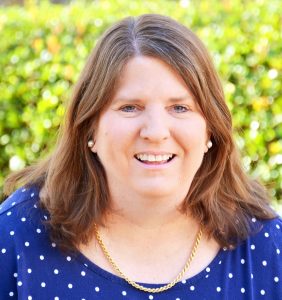The Association of College & Research Libraries offers many learning opportunities for current and aspiring academic and research librarians, with their main conference being held every other year. If you are curious about the ACRL Conference or are thinking about attending in the future this post will give an insider’s view to attending. NMRT Board members Ariana Santiago and Mandi Goodsett share their experiences from ACRL 2017 and tips for attending future ACRL conferences.
Ariana Santiago, NMRT Outreach Director
I was fortunate to attend the ACRL 2017 Conference March 22-25 in Baltimore, MD. This was my second ACRL conference, and so far I have always found it to be an exciting and rewarding conference experience. Personally, I find incredible value in the opportunities to network and make connections with others in the profession. Time spent talking with people and sharing ideas truly makes the experience worth it. I hope that sharing some of my conference highlights is helpful for anyone considering going to ACRL in the future.
My ACRL 2017 Conference began at the #Critlib Unconference. Unconferences are a bit more informal than your typical conference – there is no predetermined program, and attendees collaboratively decide on session topics at the beginning of the event. For those unfamiliar with #critlib, it is short for critical librarianship, and is “a movement of library workers dedicated to bringing social justice principles into our work in libraries.” At the #Critlib Unconference, I attended sessions on communications and marketing, class struggles in LIS, building #critlib in your library, and creating a space for people of color. The full program and session notes are available on the unconference website.
I recommend going to an unconference if you ever have the chance. I’ve found that the smaller event and less formal structure allow for richer conversations during each session. Also, the #Critlib Unconference had no registration fee and was not officially affiliated with the ACRL Conference, so it’s a good option if you don’t have the budget for the full conference.
ACRL is known for having high quality, relevant content, and I am rarely dissatisfied with any of the sessions. That said, some of my favorite sessions were those that invited audience participation. For example, at least two sessions I attended started with a think-pair-share activity (the two were “Resilience, grit, and other lies: Academic libraries and the myth of resiliency” and “Who steers the boat? On women in a feminized profession”). During a think-pair-share activity, a question is posed and attendees are asked to 1) think about the question individually, 2) pair with someone else to discuss their answers to the question, and 3) share some of these discussions with the larger group. I really appreciate when presenters make the effort to include interactive elements. I find that it forces me to think more deeply about how the content impacts me and my library, helps keep my attention throughout the rest of the presentation, and motivates me to identify how I can take action after the conference.
There are a variety of session formats at ACRL – which means there is something for everyone, but it can also be overwhelming for a first-timer. When it comes to deciding which sessions or session formats to attend, here are some things I keep in mind:
- Contributed papers are published in the conference proceedings, so I can always read them later
- Many sessions are recorded and available for attendees to view online for a year following the conference (this excludes poster sessions, roundtable discussions, and preconferences). So if I miss something that I really wanted to see, there’s a good chance I can catch up on it later.
- Roundtable discussions are one of the few session formats that are not recorded and available later, so if there is a discussion that looks interesting to you, give it a go! I’ve had great conversations at these smaller discussion groups.
- I love going to the poster sessions, because I can take in a lot of content really quickly. I usually take pictures of the posters that were most interesting to me, because not everyone uploads a copy of their presentation on the conference schedule.
If you’re nervous about networking or think you’ll have trouble meeting new people at conferences, my advice is to try one thing that takes you a step outside your comfort zone. Just one. I wasn’t planning on going to Team Trivia Night on the first night of the conference, but I went with some friends, met a few new people, and had a lot of fun (and our team tied for second place!).
Lastly, I want to give a shout-out to the ACRL Scholarship Campaign. Both times I attended ACRL, it was made much easier thanks to receiving the Early-Career Librarian Scholarship. ACRL also offers conference scholarships for mid-career librarians, library support staff, and library school students. In addition to receiving funding for the conference, a very nice breakfast was held for scholarship recipients, and we had reserved front-row seating at all of the keynote presentations. I definitely recommend applying for the scholarship!
I would be happy to talk with anyone who is interested in hearing more about the ACRL conference, or learning more about ACRL or academic librarianship in general!



